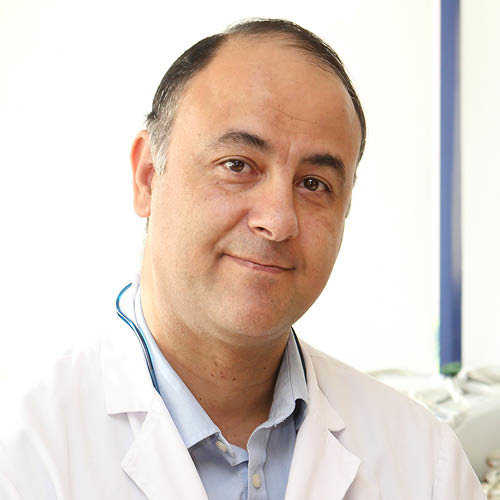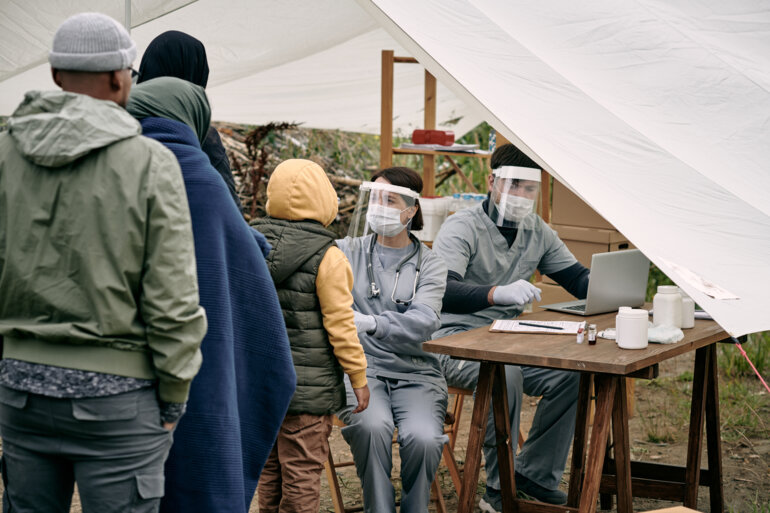Vaccination among cancer patients should not affect their participation in clinical trials and levels of acceptance of the vaccine are high
Despite the challenges of the COVID-19 pandemic and initial disruption to early-phase clinical trials, anticancer clinical drug development is now returning to a similar pace as before. It is clear that the development of SARS-CoV-2 vaccines has significantly contributed to being ‘back to normal’ by reducing the vulnerability of cancer patients. In fact, there is no evidence that immunising against COVID-19 impacts on the efficacy of chemotherapy, immune checkpoint inhibitors, tyrosine kinase inhibitors or antibodies in a clinically significant way as highlighted by ESMO in its recently updated statements.
Although phase I oncology trials have unknown toxicity risks and are done primarily to recommend safe and active doses for future studies, SARS-CoV-2 vaccination is not a limiting factor to participation. As part of an international group of medical oncologists involved in treating patients with advanced cancers in early-phase clinical trials, we recommended that the benefits of vaccination in the COVID-19 pandemic should be taken into consideration, as well as the possible benefits of participating in a phase I trial, in light of the double vulnerability of these patients to both health threatening conditions – any unnecessary and significant delays with SARS-CoV-2 vaccination and/or clinical study participation should be avoided (Lancet Oncol. 2021;22:298–301). As a precaution to minimise the risk of overlapping or added adverse events, SARS-CoV-2 vaccination should be avoided on days of parenteral investigational medicinal product dosing and also during the dose-limiting toxicity period, if possible.
Compared with earlier periods in the health crisis, we now have more knowledge to reduce the impact of COVID-19 on early-phase programmes and avoid further pauses and delays in the future.
Cancer patients are generally enthusiastic about being vaccinated and there have been very few safety issues in practice. Findings from our two centres in Madrid (START Madrid-CIOCC and START Madrid-FJD), in fact, appear to mirror those from the Institut Gustave Roussy, France, as presented in an On-demand e-Poster Display at the ESMO Targeted Anticancer Therapies Congress 2022 (Abstract 41P). In the French study, only 7 patients (5%) out of 143 with cancer did not want to be vaccinated. In total, 65% of patients who were vaccinated were treated with immunotherapy and no additional adverse events were reported. Similarly, there were no safety concerns in 23 vaccinated patients who took part in trials with a risk of developing cytokine release syndrome. Nine of these patients were vaccinated up to 21 days after cycle 1 day 1 and none experienced any severe infusion-related reactions after the vaccination.
Two years on since the pandemic began and we are in a much better place organisationally in clinical cancer research. Early-phase programmes are continuing with less disruption than at the beginning of the pandemic and, in general, clinical sites – which are especially vulnerable to the detrimental effects of COVID infection – have already adjusted well to the pandemic, with more efficient internal operations and more flexible study protocols in this context. Within the START Madrid sites of our Early-Phase Clinical Drug Development Program, we developed a plan very early on, in March 2020, to facilitate the continuity of patients’ investigational treatment, while trying to minimise their risk of infection, and put strategies in place for staff, contract research organisations (CROs) and pharmaceutical companies visiting us, to maintain data quality, compliance and good clinical practice (Cancer. 2020;126:3907–3911). Visits from patients and relatives to the clinic are reduced where possible. Previous-day phone triage has been implemented to prevent symptomatic people coming to the unit and telemedicine has been employed for visits that do not include treatment administration. Remote monitoring visits with source document verification is encouraged for the CROs and protocol windows are being used to perform rapid blood tests the day before treatment in patient-free areas. If possible, study pharmacists send oral medications to patients to avoid unnecessary visits. Also, intense and continuous use of SARS-CoV-2 rapid tests has been used during the different waves of the pandemic by patients and staff members, which, together with back-up teams, allowed us to become the only clinical trials programme to include new cancer patients for investigational treatments, even during the initial worst weeks of the pandemic in Spain.
Compared with earlier periods in the health crisis, we now have more knowledge to reduce the impact of COVID-19 on early-phase programmes and avoid further pauses and delays in the future.
Don't miss:
COVID and drug development. ESMO Targeted Anticancer Therapies Congress 2022
Educational session, 08.03.2022, h. 15:15 – 16:30, Channel 2







